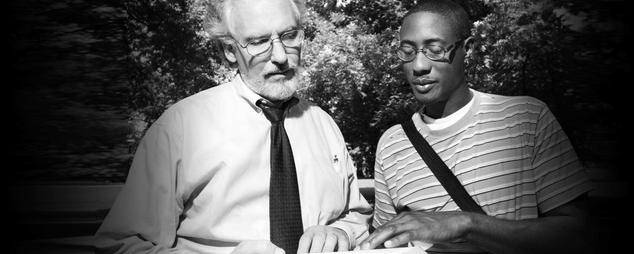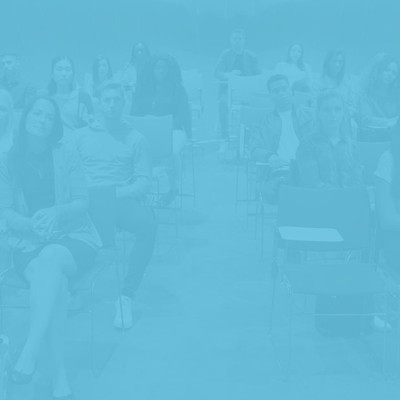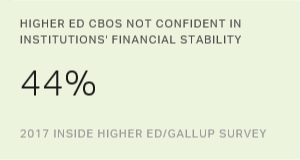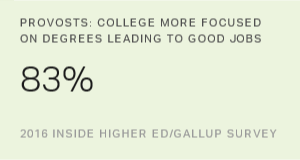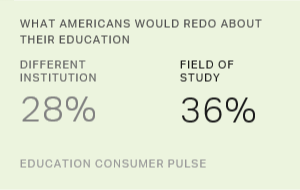Colleges and universities across the country are engaged in elaborate and often aggressive capital campaigns to raise money for their institutions.
In 2016 alone, higher education institutions raised $41 billion collectively, of which 27% went to a mere 20 schools (out of 3,900). In other words, the less-than-one-percent-ers hauled in over a quarter of all money raised.
No doubt, capital campaigns are immensely useful to these institutions. But when the storyline of higher education fundraising is mainly about the rich institutions getting richer, we're left to wonder: What can the rest do to compete?
Gallup's research points to a powerful answer: Instead of focusing efforts solely on fundraising, colleges and universities should launch large-scale "human capital campaigns."
What's a human capital campaign? It's an effort to engage alumni in two vital functions for the university: serving as mentors for current students and helping these students get internships.
Why launch a human capital campaign? Because students who have mentors that encourage their goals and dreams -- and internships where they apply what they're learning -- are twice as likely to end up engaged in their work later in life. And they are much more likely to be donors to their alma maters.
This kind of effort essentially serves two purposes: achieving more successful outcomes for graduates and generating more donations to the institution. It also creates a virtuous cycle of well-served students becoming giving -- of time and money -- alumni and giving alumni helping to serve students well.
Of the $41 billion donated to colleges and universities in 2016, $9.9 billion -- or about 24% -- came from alumni. Interestingly, though, only 20% of alumni nationally say they have donated to their alma mater in the last 12 months. This is a surprisingly low figure considering the powerful four-year experience of college and profound lifelong promises of a college degree. It would appear that there is great room for improvement in this metric. And there's a real pathway for how colleges and universities can make considerable progress -- potentially increasing alumni giving by four to eight times in a decade.

Optimize Your University
Engage students to better prepare them for great jobs and great lives.
Alumni who were mentored during college are 4.1 times as likely to be emotionally "attached" to their alma mater, meaning they have strong and highly positive feelings toward their alma mater. And alumni who had an internship where they applied what they were learning are 2.4 times as likely to be attached.
These experiences double to quadruple the likelihood a graduate is attached later. This not only matters for these graduates' own workplace engagement and well-being later in life, but it also matters greatly to their alma mater because attached alumni are twice as likely to donate compared with those who are not attached, 36% vs. 17%, respectively.
Only 22% of college graduates strongly agree they had a mentor who encouraged their goals and dreams, and less than a third (29%) strongly agree they had an internship where they applied what they were learning. Imagine how quickly higher education institutions could boost these percentages if they created large campaigns to recruit alumni to serve as mentors to current students and to help connect these students to internship opportunities. What if these percentages doubled? Well, that could more than double to quadruple the percentage of future alumni who are attached, which doubles their odds of being financial donors to their alma maters. In other words, a fourfold to eightfold increase in donations for an institution.
Just as colleges and universities have created comprehensive campaigns for financial fundraising, they can do the same to encourage human capital contributions in the form of donated mentoring hours and internship connections. Alumni don't need to donate their hours physically on campus. In fact, alumni can do much of their mentoring virtually through Skype, Google Hangout, chat, phone, etc. Nothing is preventing colleges and universities from doing this immediately.
Perhaps the top 20 fundraising institutions that account for more than a quarter of all gifts to higher education can get by without doing any of this. But for the others, human capital campaigns afford a game-changing opportunity to transform the experiences of their students, the success of their graduates and their fundraising.
